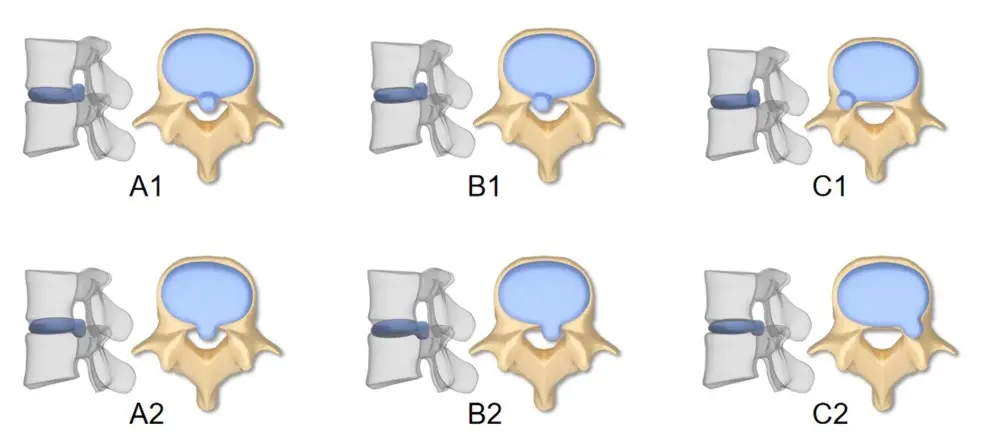- Home
- Medical news & Guidelines
- Anesthesiology
- Cardiology and CTVS
- Critical Care
- Dentistry
- Dermatology
- Diabetes and Endocrinology
- ENT
- Gastroenterology
- Medicine
- Nephrology
- Neurology
- Obstretics-Gynaecology
- Oncology
- Ophthalmology
- Orthopaedics
- Pediatrics-Neonatology
- Psychiatry
- Pulmonology
- Radiology
- Surgery
- Urology
- Laboratory Medicine
- Diet
- Nursing
- Paramedical
- Physiotherapy
- Health news
- Fact Check
- Bone Health Fact Check
- Brain Health Fact Check
- Cancer Related Fact Check
- Child Care Fact Check
- Dental and oral health fact check
- Diabetes and metabolic health fact check
- Diet and Nutrition Fact Check
- Eye and ENT Care Fact Check
- Fitness fact check
- Gut health fact check
- Heart health fact check
- Kidney health fact check
- Medical education fact check
- Men's health fact check
- Respiratory fact check
- Skin and hair care fact check
- Vaccine and Immunization fact check
- Women's health fact check
- AYUSH
- State News
- Andaman and Nicobar Islands
- Andhra Pradesh
- Arunachal Pradesh
- Assam
- Bihar
- Chandigarh
- Chattisgarh
- Dadra and Nagar Haveli
- Daman and Diu
- Delhi
- Goa
- Gujarat
- Haryana
- Himachal Pradesh
- Jammu & Kashmir
- Jharkhand
- Karnataka
- Kerala
- Ladakh
- Lakshadweep
- Madhya Pradesh
- Maharashtra
- Manipur
- Meghalaya
- Mizoram
- Nagaland
- Odisha
- Puducherry
- Punjab
- Rajasthan
- Sikkim
- Tamil Nadu
- Telangana
- Tripura
- Uttar Pradesh
- Uttrakhand
- West Bengal
- Medical Education
- Industry
Modified classification system helps predict treatment approach in migrated nucleus pulposus in patients with lumbar disc herniation

Gao et al conducted a study to evaluate the reliability of modified classification system of migrated nucleus pulposus and its clinical application value. The article has been published in ‘Journal of Orthopaedic Surgery and Research’
The authors retrieved 1000 lumbar MRI of different patients in Hangzhou Hospital of Traditional Chinese Medicine from January 2016 to December 2019 for interpretation, and screened 105 migrated lumbar MRI for inclusion in the study. Three spinal surgeons made classification according to the modified classification method. Two weeks later, the sorting data of the patients were shuffled and the classification was judged by three doctors again. The consistency and repeatability of the improved classification were evaluated by Kappa coefficient.
The general data of the included patients were collected. The patients were followed up for 2 years, and the risk factors of surgical treatment of patients with migrated lumbar disc herniation were analyzed. The treatment plan, surgical approach, operation time, VAS score, ODI score and other relevant data of the included patients were collected to evaluate the guiding effect of the classification system on clinical practice.
Key findings of the study were:
• The incidence of migrated lumbar disc herniation was about 10.5%, and most of the patients were male.
• Patients with higher BMI are more likely to develop this disease.
• Our study confirmed that the modified classification has moderate to high confidence.
• During the 2-year follow-up period, 66 patients (62.9%) were treated conservatively, and the patients with conservative treatment were mainly A2 and B2 type (59.1%).
• Thirty-nine patients (37.1%) underwent surgical treatment.
• The patients recovered well after operation, and the low back pain and ODI index were significantly improved at 1 year after operation (P <0.05).
The authors suggest that type A1 and B1 migrated nucleus pulposus can be removed by posterior approach. For type A2, B2, C1, C2, the lateral approach is recommended to remove the nucleus pulposus directly. Logistic regression and ROC analysis showed that disease duration (≥1 year) and BMI (≥24) maybe were risk factors for surgical treatment of patients with migrated lumbar disc herniation.
The authors concluded that – “Our study found that there was a high incidence of migrated nucleus pulposus in patients with lumbar disc herniation, and patients with higher BMI were more likely to have this disease. Based on MRI of the lumbar spine, we proposed a modified classification system of migrated nucleus pulposus for the first time, and confirmed that this classification system has good consistency and repeatability. On the basis of ignoring the primary segment, we believe that conservative treatment is the first choice for most patients with MLDH, especially for type A2 and B2 patients. Patients with disease duration ≥1 year and BMI≥24 have potential surgical risk. For patients with type A1 and B1 according to the modified classification, the posterior approach can be used for treatment, while the lateral approach is recommended for patients with type A2, B2, C1 and C2.”
Study design: Retrospective cohort study
Further reading:
Independent reliability and availability analyses of modified classification for migrated lumbar disc herniation
Wenshuo Gao, Wei Zhang et al
Journal of Orthopaedic Surgery and Research (2023) 18:201
https://doi.org/10.1186/s13018-023-03688-7
MBBS, Dip. Ortho, DNB ortho, MNAMS
Dr Supreeth D R (MBBS, Dip. Ortho, DNB ortho, MNAMS) is a practicing orthopedician with interest in medical research and publishing articles. He completed MBBS from mysore medical college, dip ortho from Trivandrum medical college and sec. DNB from Manipal Hospital, Bengaluru. He has expirence of 7years in the field of orthopedics. He has presented scientific papers & posters in various state, national and international conferences. His interest in writing articles lead the way to join medical dialogues. He can be contacted at editorial@medicaldialogues.in.
Dr Kamal Kant Kohli-MBBS, DTCD- a chest specialist with more than 30 years of practice and a flair for writing clinical articles, Dr Kamal Kant Kohli joined Medical Dialogues as a Chief Editor of Medical News. Besides writing articles, as an editor, he proofreads and verifies all the medical content published on Medical Dialogues including those coming from journals, studies,medical conferences,guidelines etc. Email: drkohli@medicaldialogues.in. Contact no. 011-43720751


